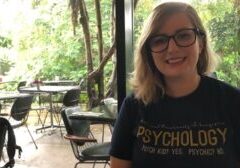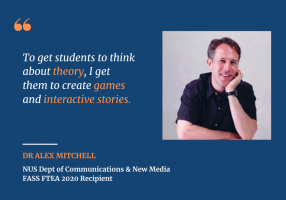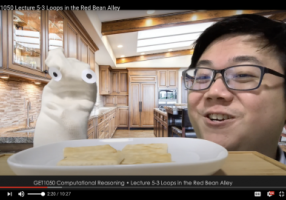Dr Nina Powell: Educating Students on How to Think
February 26, 2021
IN BRIEF | 5 min read
Senior Lecturer (NUS Psychology) Dr Nina Powell challenges her students with theoretical diversity and critical thinking. She tells and shows us that:
- Students should embrace uncertainty and questioning
- Theoretical diversity is critical for in-depth thinking and students should not be fed with simple answers
- Lectures are opportunities for frequent discussions of concepts and tutorials are for peer learning and reflection
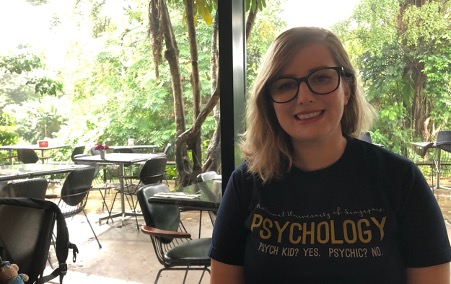
Educating is giving students a wealth and diversity of content that they then have to grapple with, and not just providing them with answers or simple conclusions, according to Dr Nina Powell, Senior Lecturer from the NUS Department of Psychology, sharing the main principle that guides her approach to teaching.
Dr Powell was one of 36 recipients of the Faculty Teaching Excellence Award (FTEA), awarded to outstanding NUS Faculty of Arts and Social Sciences (FASS) faculty members for their high level of commitment in Academic Year 2019/2020.
“Educating is not telling students what to think, it’s educating them on how to think. And they don’t always have to like it in the short-term,” she said. “If we know that something is going to benefit students in the long-term, and that the discomfort that comes with meaningful growth is worth it in the end, then that is good enough.”
Lectures as Opportunities for Discussion Breaks
Whenever Dr Powell, who started teaching at NUS as a post-doctoral teaching fellow in 2013, is running her lessons she always ensures she focuses on: motivating students to embrace uncertainty and questioning; being transparent with students about the educational value in everything that she is doing; and emphasizing how critical theoretical diversity is to in-depth thinking.
Dr Powell is the creator of The Psychology of Moral Judgements (PL4235) module, which explores how people make moral judgments psychologically, philosophically, biologically, socio-culturally and historically, and which she proudly refers to as her “baby”. She currently also teaches Introduction to Psychology (PL1101E) and Developmental Psychology (PL3234).
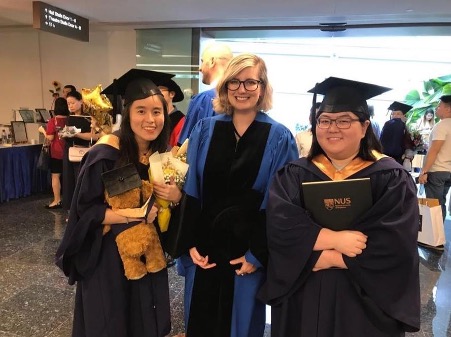
Stressing that educators do students no favours by overwhelming them with information without giving them the space to reflect on what they have learned, Dr Powell said she has “reimagined lectures as an opportunity for frequent discussion breaks between concepts, and tutorials as an opportunity for complete peer learning and reflection.”
She allots ample time during lectures to engage with student questions using the onlinequestions.org website and redesigns her tutorials such that students attend the sessions having already learned the lesson material. She sees to it that they discuss complex reflection questions in small breakout groups, and that they work together toward concretising their discussion points and responding to one another’s points or respond to their classmates’ points via the online collaborative learning tool called Padlet.
Asked for her thoughts on the most rewarding aspect of her job, Dr Powell said she has received emails from current and former students telling her that they “get it” – that they are more confused than ever about the answers to the big questions in the field, but that it motivates them to read and search more. “That’s when I feel like I might be doing my job properly,” she said.
Grooming Confident Students with Stronger Ideas
According to Yip Yun Ting (Class of 2019, Psychology), Dr Powell always goes beyond what is expected of her as an educator by taking it upon herself to develop her students as individuals. Yun Ting, who had previously been supervised by Dr Powell for her Honours Thesis, appreciated how Dr Powell went the extra mile to help her understand concepts, present ideas and craft arguments better.
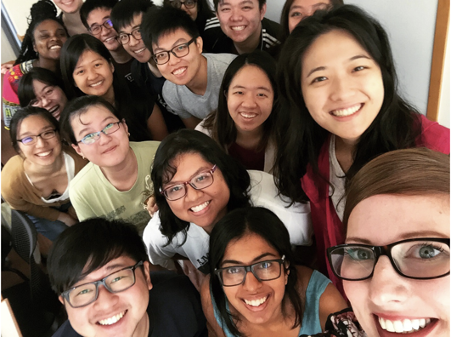
“For example, besides providing all her thesis students with optional weekly individual supervision, she arranged extra group supervisions with at least 15 other thesis students, just so that we could have exposure to thesis oral presentations, oral defense and to become confident presenting and defending our ideas,” Yunting said.
“As her supervisee for my thesis, I always viewed her as a very adaptable, intelligent and humble individual, who was always ready and competent to explain complex and abstract psychological constructs in a simple and jargon-free manner,” she added.
Champion of Peer Learning and Collaboration
Outside of her own classroom, Dr Powell is also committed to assisting her colleagues with their career and pedagogical development. As part of the Career Advancement for FASS Educators (CAFÉ) Committee which was inaugurated early this year, she has led, co-organised and co-hosted weekly sharing sessions on e-learning classroom innovations and insights on career development with her fellow educators.
She also founded MADE in Psych (Mentoring and Demystifying Education in Psychology), where she mentors and shares her teaching plans, practices, tools and tips with colleagues in the Department of Psychology.
“This has been the most unexpected joy of the job,” Dr Powell said of her mentorship role. “It motivates me to be better, try new things, find out what works well so I can report back. It feels like a collective responsibility to make all of us as good as we can possibly be and find as much meaning in our educational practices as we possibly can.”
This story is part of a series highlighting the pedagogical approaches of FASS Faculty Teaching Excellence Award 2020 recipients.


